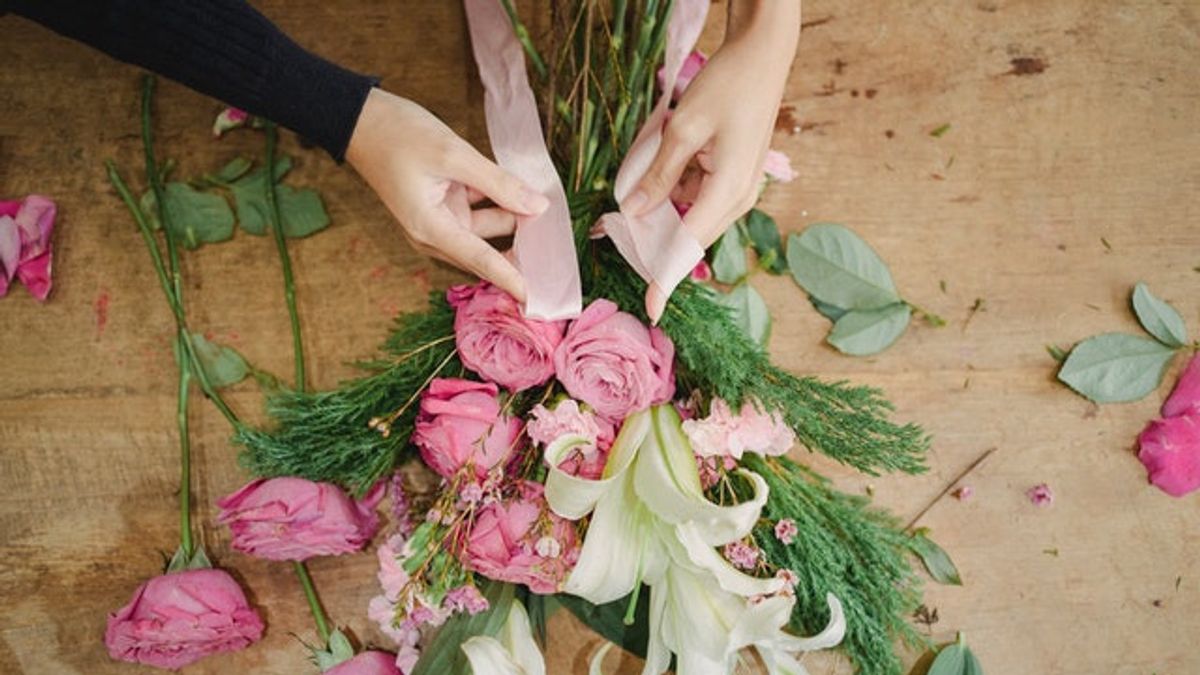JAKARTA - The presence of plants can make the house look more beautiful and beautiful. But did you know that not all plants can be grown at home. It is not only a matter of size, but also because there are some that are harmful to human health and safety.
In order not to be fooled by its beautiful appearance, let's look at the following 5 dangerous plants that you should not plant at home, launches Dekoruma, Friday, August 10.
Angel's Trumpet PlantThis plant which is also known as amethyst has beautiful flowers. Unfortunately this plant contains hallucinogenic substances, atropine, hyosciamina, and scopolamine which are included in the narcotic category so that several countries prohibit the sale and purchase of this plant. If the substance was inhaled, then the victim will experience hallucinations, even loss of consciousness. Do not grow it at home, especially if you have small children.
Japanese Flower PlantStill around flowers, the next dangerous plant that needs to be avoided is the Nerium oleander flower or Japanese flower. The flowers are beautiful and you don't have to wait long to see them bloom. But, this one flower has oleandrin and neriine toxins that can interfere with the nervous system, digestive system, and circulatory system. The side effects that are felt depend on the condition of the patient's body.
At worst, one patient can suffer all three side effects at once. Symptoms that will be experienced by victims of this Nerium oleander plant are nausea, vomiting, irregular heartbeat, headaches, and coma.
Castor PlantJatropha leaves have long been known to be effective in treating various diseases such as flatulence, difficult bowel movements, injured skin, rheumatism, and many more. Unfortunately, the seeds of this castor plant contain dangerous toxins.
Kepyar jatropha seeds contain a poison called ricin, while jatropha leaves contain a poison called curcin. Both of these toxins belong to the category of toxalbumin which is capable of clumping red blood cells and causing bleeding in the gastrointestinal tract. Castor seeds also contain gallic acid which can irritate the stomach and cause kidney failure.
Lily flowerAs one of the flower plants in the tropics, lilies are often used as flower bouquets or room decorations because of their beautiful appearance. This ornamental plant is actually harmless to humans, but it can be fatal if you keep a cat. Hemerocallis lilies can cause a cat that licks the leaves to experience kidney failure, even death.
Gympie-gympie plantsThe next plant that you should not plant in your home garden is the gympie-gympie which is commonly found on the mainland of Maluku. If other harmful plant poisons react when ingested or inhaled, these gympies can spread the poison with just a touch.
All parts of this plant are covered by fine hairs. These feathers have poison. If you accidentally touch it, the victim will experience severe itching and can even cause nosebleeds. Not only humans are victims, but animals too, you know.
The English, Chinese, Japanese, Arabic, and French versions are automatically generated by the AI. So there may still be inaccuracies in translating, please always see Indonesian as our main language. (system supported by DigitalSiber.id)













